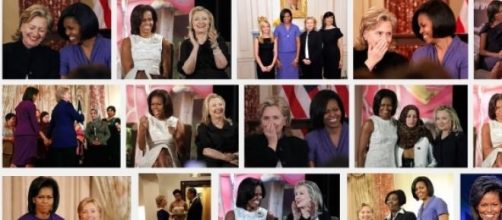As I sat down in a small room at the Moscone Center, in San Francisco, I heard appalling stories from women who have been discriminated against for being just that - women. It was a roundtable organised by the International Game Developers Association's Women in Games Special Interest Group. It turned out to be something broader: in 2015, women are still fighting for their right to equality.
"I had a good job in the gaming industry. I got pregnant and was discriminated (against) and bullied at work the entire time", a female game designer confessed.
"Four months after I got back, I ended up getting fired. I lost my career when I had a kid, right when I needed it." Another young woman, a 33-year old immigrant from South Korea, graduated last year in game design and is still looking for a job in the gaming industry. "They tell me it's a boys club," she deprecated. Celia Pearce, a game designer and teacher who works with IGDA, told a story about a woman reporting sexual harassment in her company and getting fired for it. "This is a system issue," she warned.
The discrimination in the gaming industry is part of a bigger problem in the tech sector, where women are misrepresented and rarely reach the highest executive positions. And the tech sector is part of an even bigger problem in America: wage inequality and veiled discrimination against women in the labour market.
This seems like dèjá-vu, as every year on International Women's Day these numbers are discussed: for every $1 a man earns, a woman will get 82 cents. If the woman belongs to a racial minority, it goes even lower. The International Labor Organisation has just warned that the gender pay gap might not close for another 70 years.
These are probably not the kind of numbers that prompted Oscar-winning actress Patricia Arquette to ask for justice in her victory speech, but she brought the subject back to the limelight. "It's our time to have wage equality once and for all and equal rights for women in the United States of America," she shouted.
And this does have a point.
Turns out the United States does not guarantee equal rights for women in its Constitution, even though the Equal Rights Amendment has been doing the rounds in the corridors of power since 1923, but has never been passed. There's also this surprising fact: there are only seven countries in the world that didn't ratify the United Nations Convention to Eliminate All Forms of Discrimination Against Women (CEDAW). Those countries are Iran, Nauru, Palau, Somalia, Tonga, Sudan and… the United States of America.
"We have to recognise that while attitudes are changing, women and girls still face appalling inequality and injustice around the world," singer Annie Lennox wrote in an editorial published by The Guardian.
She called out something that is common now - the idea that feminism is not necessary anymore, because women have the same rights as men. A notion that is clearly not confirmed by social realities: 75% of elders living in poverty in America are women. Rape and other forms of sexual violence affect 1 in every 5 women, an incredibly high percentage in a country where women enjoy so much freedom. And 1 in every 4 women suffer some kind of domestic violence.
This International Women's Day, the theme is "Make it happen." That's what the group Women on 20s is trying to achieve, as it advocates a woman's face should be on the $20 bill, that currently shows 7th president Andrew Jackson. Rosa Parks, the woman credited for sparking the civil rights movement, and the activist Betty Friedan are two of the names the group has been talking about.
One of the things that proves feminism is still necessary is the fact that Forbes cites the number of women in Washington as a reason to be optimistic. There are 104 women in the U.S. Senate (20) and the House of Representatives (84). That's one fifth of the total. One fifth, 226 years after the first U.S. Congress. And it's an all time high.

